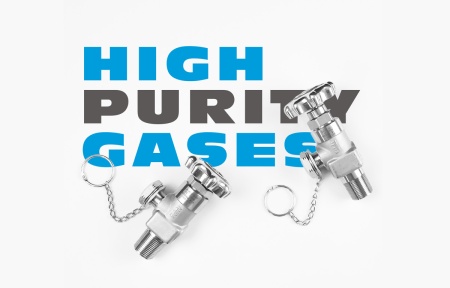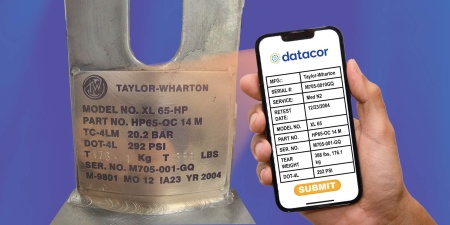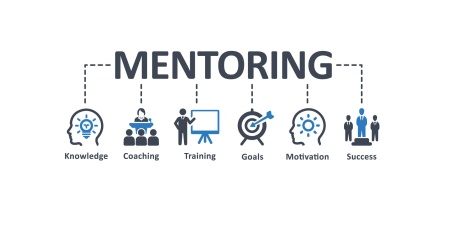ADAPTABILITY
As I start the New Year, I like to make observations about the previous year. Looking back, 2023 was a year replete with some big challenges for business. Stubborn inflation affected pricing. China’s post-COVID chaos continued to exacerbate supply chain issues and accelerated attempts to reshore manufacturing. Labor shortages plagued many business sectors. The third-worst year of global economic growth this century (behind 2009 and 2020) slowed sales, and geopolitical tensions made us all uneasy. And, finally, the use of artificial intelligence (AI) accelerated the pace of change in how business is conducted.
The secret to success in 2023 was adaptability. The best distributors got creative in confronting the year’s biggest challenges. The most important consideration in finding the right path through the weeds was maintaining focus on customer-centricity. The greatest advantage independent, privately owned businesses have over alternative channels is their customer relationships.
SELLING THEN
In the 1970s and early ‘80s, I worked for an international company that distributed welding supplies and atmospheric gases. We sold primarily through independent, privately held businesses. Our field salesforce was comprised of both generalists and specialists. The generalists, who were sales engineers, called on distributors in 8 to 10 local territories. The product specialists covered a larger geographic region. Both sales engineers and product specialists reported to regional offices. The sales engineers were responsible for maintaining personal relationships with their distributors. They managed new product demonstrations, pricing, backorders, administrative issues, and all other corporate communications. The product specialists managed specific technical offerings. For our industry, this included cutting and welding products to identified industries such as railroads, large manufacturers, and other highly sophisticated end-users. All product specialist accounts were assigned to sales engineers to ensure customer-centric relationships.
SELLING NOW
The sales model above changed radically with the introduction of the internet. Consider today’s digital- driven Enterprise Sales approach. Account reps have the IoT (Internet of Things), which connects them to all manner of advanced technology applications. The Enterprise Sales rep is now a customer advocate. Communication is online and things like product demonstrations can be virtual. Enterprise Selling in 2024, therefore, requires that sales reps be tech savvy and use the latest development tools.
VIRTUAL CALLS
One valuable tool in Enterprise Selling is the virtual call. While personalization with your customers should include both in-person and virtual calls, data shows customers are beginning to prefer the latter. For your high-profile accounts, I recommend two virtual calls for each in-person call. Consider that a salesperson can make an average of 3 to 4 in-person calls per day, vs. 6 to 8 virtual calls. Time is saved and transportation costs are lowered with virtual calls.
In addition, virtual providers now offer AI companion summaries of calls. For example, Zoom calls can include a quick recap, summary, and list of next steps. These reports are automatically generated and can even be read aloud to you.
THE DIGITAL SCHEDULE
Keep track of your schedule with a digital calendar. This tool provides a history of calls and is excellent for planning purposes. Digital calendars minimize time spent scheduling or rescheduling meetings.
The days of waiting in the lobby for a client to squeeze you in at the last moment are over. If you are not already doing so, all appointments, virtual or in-person, should be initiated using digital calendar software. Before ending a meeting, share calendars with your customers and prospects. Then send them your suggestion for your next appointment. Your contact will send back an email accepting, rejecting, or changing the appointment.
DIGITAL CAPABILITIES
How is your company supporting you in implementing and using digital practices? Forrester Research suggests that, among B2B buyers, those born in 1981 or later, “now hold the keys to decision making for the majority of purchases” (Younger B2B buyers accelerate demands for more digital commerce, Mark Broham, Jan. 15, 2024)( digitalcommerce360.com/2024). That means digital natives are in charge and you need to be able conduct business accordingly.
Digital capabilities are now critical to success. Make sure your team is current with these technologies.
ERP
Enterprise selling requires a centralized software system, known as an Enterprise Resource Program (ERP). These programs support your customers by streamlining your company’s essential processes. Inventory control, asset and rental management, customer sales records, accounting, business intelligence, are all tasks supported by ERP. When ERP data is integrated with your Customer Relationship Management (CRM), your internal processes are unified. Your customers are able to make purchases, review orders, search inventory, check delivery status, and review accounts payable online. This frees the field salesperson to focus on relationship building and value-added selling versus the traditional quoting, pricing, and chasing of backorders and deliveries.
E-commerce
E-commerce software offers consumers the ability to order 24/7. It integrates your ERP with your website and mobile apps. Ongoing innovations in multichannel marketplaces allow your customers the convenience of purchasing from third parties through your website.
E-commerce also offers the opportunity to develop deeper relationships with customers as it tracks their purchasing behavior over time. That data leads you to a better understanding of your customers’ needs and requirements and helps project future demand.
AI
Artificial Intelligence is rapidly infiltrating the sales cycle and offers exciting possibilities for transforming how business is done. Its applications are complex and there is a lot to consider when choosing which AI tools to implement.
Distributors collect a myriad of valuable internal, customer, and vendor information in the process of doing business. AI can generate outputs based on that data. Remember, AI outputs are only as good as the data you input. It must be properly managed. In a recent Forbes article on this topic (forbes.com/garbage-in-garbage-out), Simon Jelley points out that only 23% of your collected data will probably be “good” data. According to Jelley, there is a lot of data to clean to get to the good stuff. Make sure your team does this.
Sales reps bring knowledge and experience to the deal. With the right AI applications, your best salespeople become even better. AI is most effective in sales when it’s treated like an aid, as opposed to a replacement, for key human practices.
CONTENT MANAGEMENT
To keep your customers on your website, your website needs to stand out from competing sites. To provide an exceptional E-commerce experience, you must provide superior product content. Buyers today are looking for more (and better quality) images, videos, 360-degree spins, and countless types of documents (spec sheets, installation guides, application, and warranty information). They are interested in finding and evaluating your products in a fast and easy to use format.
PRICING STRATEGIES
While the methods of creating pricing strategies have changed, their importance to your success has increased. Are your pricing policies clear? Do your customers get different pricing from outside sales reps, inside sales reps, E-commerce orders, customer service reps, and/or counter store reps? Do your salespeople know how the pricing works? Inconsistency in pricing breeds customer complaints and less scrupulous customers can play one employee’s quote against the other, costing you money.
Technology has changed the dynamics of pricing strategy. With digitalization, application programming interface (API) software for pricing are readily available. These can be added to a functional ERP, and they can measure customer pricing performance. Sales should be supported with data-driven processes. Pricing software removes concern in making critical pricing decisions and eliminates divisive customer profitability sessions between sales reps and management.
CUSTOMER PERSONALIZATION
For your Enterprise sales team to represent the company with increased customer personalization in 2024, distributors will need to pay attention to the changing dynamics in vendor managed inventory, robotics, and warehouse automation.
Vendor Managed Inventory — According to a report in Modern Distribution Management, business for one of our industry’s largest distributors is good. “Fastenal reported their 2023 fourth quarter and full-year financial results on January 18, showing that sales and profits had edged up during the period despite what’s been cited as softening demand conditions by most of the industrial distribution sector. Fastenal posted a 2023 operating profit of $1.53 billion, up 5.2% compared with 2022. They reported total sales of $7.35 billion, up 6.3%” (Onsites Push Fastenal Profits Higher in 4Q as 2023 Sales Top $7.3B)(www.mdm.com). Of note, E-commerce represented 58.1% of Fastenal’s total sales.
Fastenal transformed their company from a distributor-dependent-on-its-branch-network to one that prioritizes integrated supply and self-service at the customer location using vendor managed inventory (VMI). This created significant savings in transportation, reduction in inventory, and ease of operation to both Fastenal and the customer. Introducing this level of ease of operation and personalized attention allowed Fastenal to gain market share within the customer base. Why would the customer buy from other channels when they can put it all in one digital order?
Fastenal’s continuous growth of in-location personalized sales is a wake-up call to the independent distributor. Distributors need to build VMI manufacturer partnerships and start installing units. Fastenal’s goal for 2024 is to add 400 additional onsite customer locations. They added 326 in 2023. These gains will come from the traditional distribution network!
Robotics — As a vice president of sales for an independent distributor from 1985 to 2018, I watched robotic equipment costs decrease and product efficiencies increase. This enabled our company to increase sales of this equipment each year. Today, the cost of selling a Cobot is less than $100k. The ease of training customers on this product is negligible, particularly for the computer savvy operator under age 30. To be successful in 2024, Enterprise salespeople must be selling robotics.
Warehouse automation – One of the biggest issues a distributor faces is warehousing errors. As a sales executive, I spent countless hours working to resolve warehouse related problems. Customers were constantly warning us that if we couldn’t correct our warehouse delivery issues, they were going to switch vendors.
Today, logistics software can streamline your warehouse operations and save your company time, money, and customers. A typical logistic warehouse automation center uses less space than a traditional warehouse and can receive and retrieve stock quickly while eliminating shipping errors. Automated warehouse logistics includes the management of networking operations, information, transportation, inventory, warehousing materials, and handling and packaging. Having an automated warehouse enables the Enterprise salesperson to take inventory correction responsibility off their customer support list.
KEEP UP WITH THE JONESES
Independent distributors succeed based on the added value they bring to the customer relationship. Think of digital applications as a means to make those relationships even stronger. In 2024, focus on the integration of digital tools in your Enterprise Selling process. Developing new hybrid enterprise skills for your sales team is a necessary transition and will require effort. Salespeople will need to work closely with their organizations to make the most of the digital transformation. I hate to say, “You need to keep up with the Joneses,” but in the digital era nothing could be truer!










